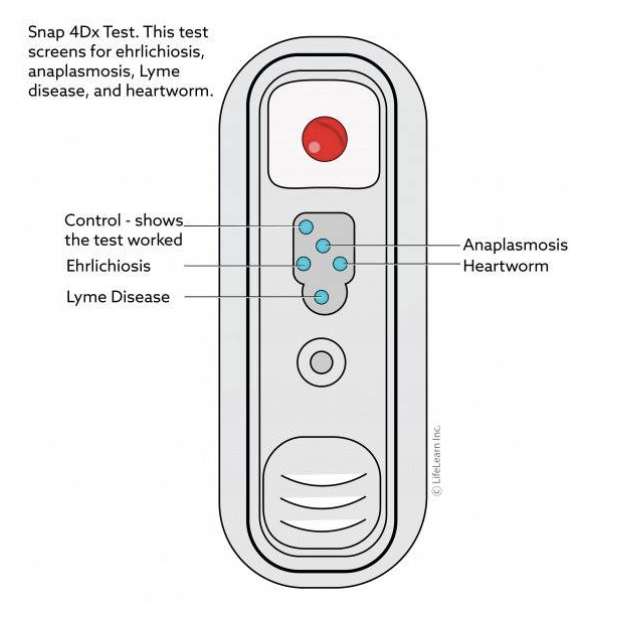Summer Pet Safety!
GLVH
Summer is finally here! And with that comes lots of time spent outside, summer storms, hot days and time spent in or near water. This all sounds so lovely after the winter we had, but even this season has its risks, so here are season-appropriate safety tips for you and your pets.
Heat Stroke
Heat stroke is definitely a summer concern for our dogs and cats. On really hot days, limit time being active outdoors to cooler times of the day, such as early morning and evening. Make sure you have water available to your pet, and save all high energy activities for another day or time when the temperature has dropped.
Special note that brachycephalic breeds are more at risk to heat stroke as they have more difficulty breathing and keeping themselves cool. Some of these breeds include Old English Bulldogs, French Bulldogs, Pugs, Shih Tzus, Persians and any other flatter faced dogs or cats.
Some signs of heat stroke in pets include:
- Heavy/excessive panting
- Tachycardia (increased heartrate)
- Dehydration (tacky gums)
- Nausea
- Vomiting
- Loss of appetite
- Lethargy
- Diarrhea
- Pacing/restlessness
Call your veterinarian for advice if your pet is experiencing any of these symptoms.
Hot Pavement
When the pavement is too hot for you to walk on in bare feet, it is also too hot for your pets! Be mindful of this as burns to paws can hurt a lot, put your pet at risk for infections and take time to heal. If your pet has to go out, stick to grass and shaded areas or rubber soled booties might help in a pinch; but avoidance it probably your safest bet on those really hot days!
Cars and Heat
At no time when the weather is warming up are cars safe for pets to be left in unattended. Even if it isn’t that hot outside, it is amazing the dramatic temperature increase that can occur inside a car. This elevated temperature, even if the windows are cracked open, can cause severe heat stroke in pets and even puts them at risk of death. If at all debating the risk, better to be on the safe side and leave your pet at home, or take them out of the car and bring them with you instead of leaving them inside your vehicle.
Water Safety
Many of our dogs, and the occasional cat, loves the water! With Summer often comes time spent at the cottage or on a beach somewhere, and if you’re lucky, your furry friend gets to spend that time with you. If your dog or cat is not a good swimmer but spending time on a dock or boat, a life jacket is a cute and excellent safety precaution. If your dog loves to swim, and is in and out of the water all the time, just be mindful of them and keep an eye like you would a child swimming. This is especially important with any dog that is in and out of the water all day, and doesn’t know when they need a break, as exhaustion could factor into their ability to remain afloat.
Thunderstorms and Lightening
Summer brings an increase in storms, and many pets do not like these. Be prepared for inclement weather and ensure your dog or cat is in a safe space for that time, as they often detect storms sooner than we do and may run away and hide. Track weather apps and if you give your pet calming medications for storms, make sure you have some on hand to give as needed.
On a side note, the same can be said for fireworks, preparedness is key to keeping your pets calm and safe.
UV Radiation
As with humans, UV rays can also harm dogs and cats and be a cause of cancer, especially those of paler colours and areas with pink skin. Using a safe dog or cat friendly sunscreen or nose balm is best as some ingredients in human sunscreens can be toxic. Providing shade or protective pet clothing, and monitor that your pet does not continually lie in the sun for hours.
Wildlife Encounters
Often, we see more wildlife activity as the weather warms up and we spend more time outdoors. In almost all circumstances, avoidance of direct contact with wildlife is for the best as there is risk of injury to your pet and yourself, transmission of disease, or the unpleasantness of dealing with being sprayed by a skunk, or having to have porcupine quills removed from your dog!
If you see any suspicious wildlife behaviour you can report it or call for assistance to Ontario Ministry of Agriculture, Food and Rural Affairs, your local Humane Society or Wildlife Rehabilitation centres, or local police for assistance.
Hot Spots
Hot spots, or moist dermatitis, occur when an area of the body traps moisture under the fur, say after swimming or hot and humid weather. This allows for the proliferation of bacteria on the skin as the environment becomes favourable for them, and becomes quite painful and itchy to the patient. This in turn causes them to lick, scratch, chew at the region and progress to a traumatic lesion.
Hot spots generally need to be treated by a veterinarian to help stop the progression of the lesion and let the current wound heal. Treatment will often include clipping the hair away from the hot spot, cleaning the area with an antibacterial scrub, and topical and/or oral medications may be necessary depending on the severity of the lesion.
Wishing you all a safe and fun-filled Summer!
Dr. Hillary











































